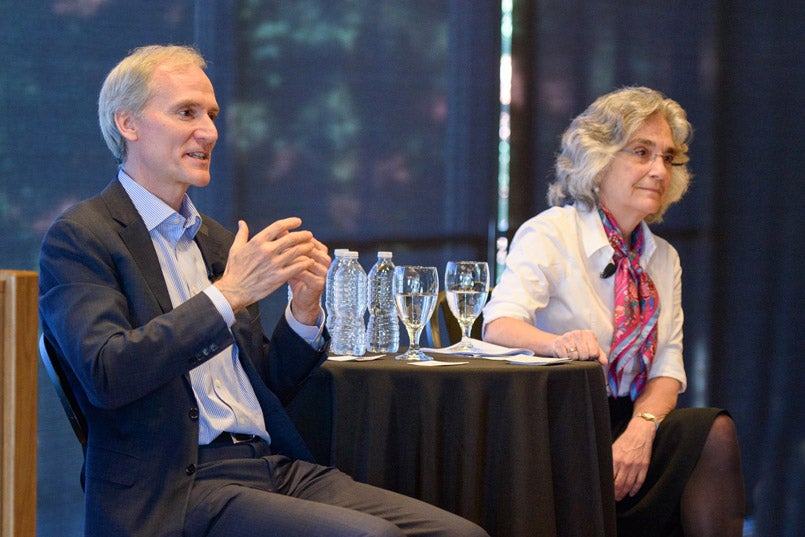November 9, 2017
On the Robert Spencer event
On Tuesday, November 14, Robert Spencer, a writer and blogger, will speak at Stanford at the invitation of a student organization. The students who invited Mr. Spencer have explained that they wish to hear Mr. Spencer’s perspective on terrorism, and those who attend the lecture will form their own opinions on the merits of his arguments.
We are, however, compelled to call out the fact that Mr. Spencer has a track record of actions and speech that motivate hatred towards Muslims, contradicting our university’s values of inclusion and respect for all peoples and faiths. We acknowledge the emotional impact of Mr. Spencer’s visit on university community members, and we are actively developing supports for the Muslim community before and after his visit.*
Let us be perfectly clear: No statement made next week or beyond can undercut the fact that Muslim students, staff and faculty are an integral part of our community.
Many community members have asked why Stanford allows speakers to come to campus who espouse views that may disparage people in our community. Their question goes to the heart of the issue of freedom of expression at our university: We promote the free circulation of ideas as fundamental to our intellectual work of discovery and learning, and yet we know that some ideas that we allow to circulate are counter to our values and cause members of our community to experience fear or hurt. President Tessier-Lavigne and Provost Drell addressed this tension in their blog post this week on “Advancing free speech and inclusion,” which we urge all to read.
Significantly, in relation to the talk next week, the president and provost underscore our university’s commitment to freedom of expression, which allows groups in our community to host speakers of their choice provided university policies are followed and imparts upon each of us a responsibility to ensure that speech can proceed without disruption.
However, the president and provost also emphasize that this commitment empowers each of us to exercise our own free speech, “to call out hate when we see it,” and to speak forcefully and peacefully against injustice. These are values we know Stanford community members – of all faiths and none – feel deeply about.
Here, we exercise our speech rights as university leaders and as individuals. We denounce viewpoints of intolerance and hatred as antithetical to our core belief in the dignity and value of all peoples. We also recognize that anti-Muslim racism and other forms of bigotry are systemic and require long-range and comprehensive approaches. We reaffirm our support for the Muslim community, and ask all to stand with us in speaking out for a mutually supportive society where all experience care and respect.
* For more information about Stanford’s free speech and inclusion principles, the event itself, and current and developing community support resources, visit freespeech.stanford.edu.
